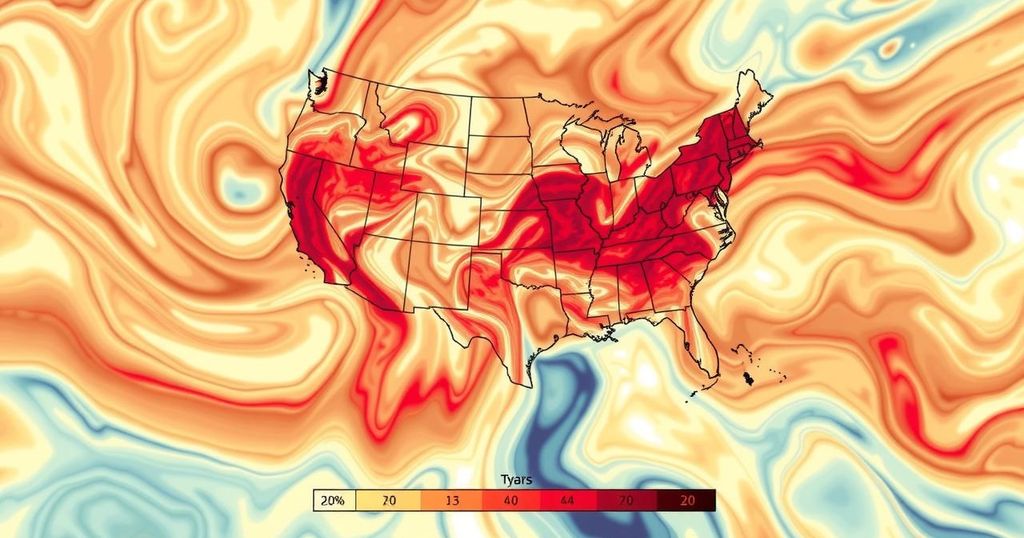In 2024, climate change added an average of 41 days of extreme heat, adversely affecting health and the economy. The Lancet indicated potential labor income losses for India could reach $141 billion due to heat-related productivity decreases. Much faster action to move away from fossil fuels is urgently needed to avert continued extreme weather events, which were largely influenced by climate change.
In 2024, human-induced climate change resulted in an additional average of 41 days marked by dangerous heat, severely impacting public health and natural ecosystems, according to a comprehensive year-in-review analysis. Research has previously established a correlation between elevated temperatures and decreased workforce productivity, leading to significant economic ramifications. A notable study published in The Lancet in October 2024 underscored that India could potentially lose up to $141 billion in income due to diminished labor capacity attributed to heat exposure in 2023.
The report from World Weather Attribution (WWA) and Climate Central emphasized that an accelerated shift away from fossil fuels is imperative to mitigate the occurrence of extreme heat waves, droughts, wildfires, storms, and floods in the future. The findings highlighted that the world endured an average of 41 additional hazardous heat days in 2024 due to anthropogenic warming, categorizing these days within the top 10% of highest temperatures recorded globally from 1991 to 2020.
This exacerbated heat contributed to numerous climate-related disasters, including heatwaves, droughts, significant fire threats, storms, and heavy rainfall leading to flooding across various regions. The study identified a total of 219 significant weather events, complying with WWA’s criteria for impactful occurrences. While many of these extreme events early in the year were influenced by the El Niño phenomenon, most analyses indicated that climate change exerted a greater effect than El Niño on these incidents, including the unprecedented drought affecting the Amazon rainforest.
Dr. Friederike Otto, a leading climatologist at Imperial College London and head of WWA, remarked: “Extreme weather killed thousands of people, forced millions from their homes this year and caused unrelenting suffering. The floods in Spain, hurricanes in the US, drought in the Amazon, and floods across Africa are just a few examples.” With 2024 on track to become the hottest year on record, the first half alone reflected record-setting temperatures, continuing a 13-month trend that commenced in 2023, including the planet’s hottest day ever recorded on July 22, 2024.
The phenomenon of climate change significantly alters global weather patterns, leading to more extreme weather events such as heatwaves and flooding. This shift is predominantly caused by human activities, specifically the burning of fossil fuels, which increases greenhouse gas concentrations in the atmosphere, thereby raising global temperatures. The resulting changes pose risks not only to ecosystems but also to human health, safety, and economic stability.
The findings presented in the report underscore the urgent need for immediate action to reduce greenhouse gas emissions and transition to more sustainable energy sources. As extreme weather events become increasingly frequent and intense, the implications for health, economic productivity, and global climate stability call for a concerted global response to combat climate change and its dire impacts. Addressing the underlying causes is essential to mitigate further risks and safeguard future generations.
Original Source: www.businesstoday.in






